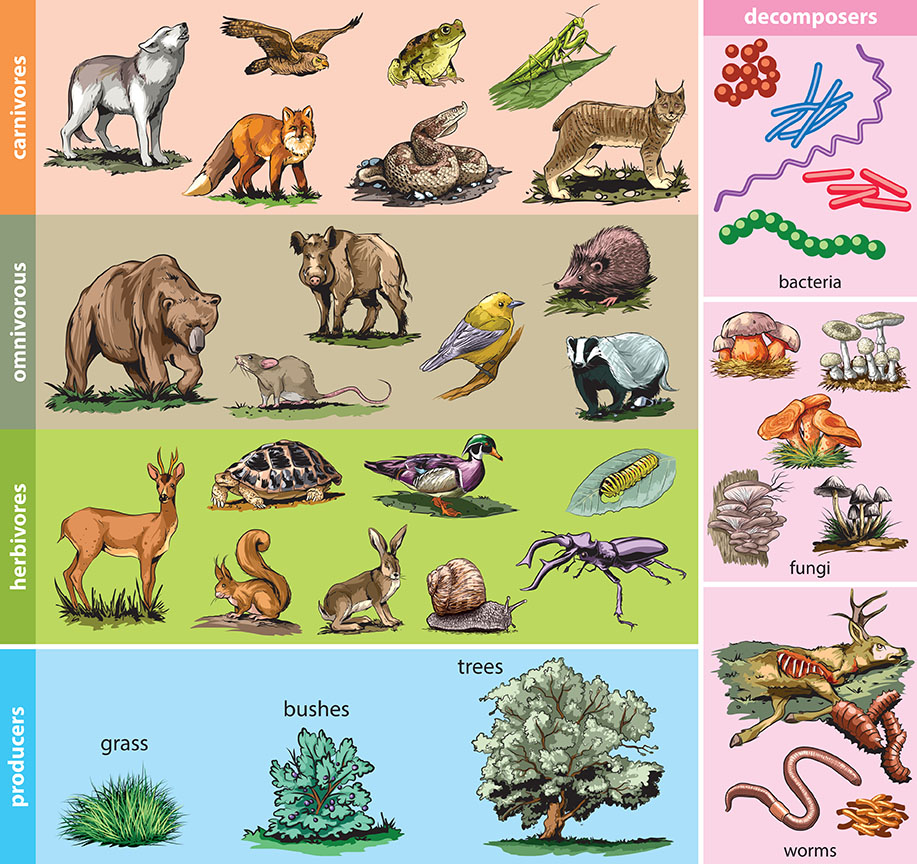

An omnivore is an animal that eats both plants and animals. Omnivores have the ability to digest both plant and animal matter, which gives them a wider range of food options than herbivores or carnivores.
Some common examples of omnivores include humans, bears, pigs, and raccoons. Humans are omnivores because we eat a variety of foods, including fruits, vegetables, grains, meat, and dairy products. Bears are omnivores because they eat plants, insects, fish, and small mammals. Pigs are omnivores because they eat fruits, vegetables, roots, and insects. Raccoons are omnivores because they eat insects, fruit, nuts, and small animals.
Omnivores play an important role in the ecosystem by helping to keep populations of plants and animals in balance. For example, bears help to control the population of insects and small mammals, which can damage crops and gardens. Pigs help to turn over soil and aerate it, which helps plants to grow. Raccoons help to control the population of insects and rodents, which can carry diseases.
The word "omnivore" is related to the words "omnivorous" and "omnivoracity.".

Noun: An animal that eats both plants and animals.
Adjective: Relating to an animal that eats both plants and animals.
The word "omnivore" comes from the Latin words "omnis," which means "all," and "vorare," which means "to devour." So, an omnivore is an animal that eats "all" kinds of food, including plants and animals.
The word "omnivore" was first used in English in the 17th century. It was used to refer to an animal that eats both plants and animals.
What do omnivores eat?